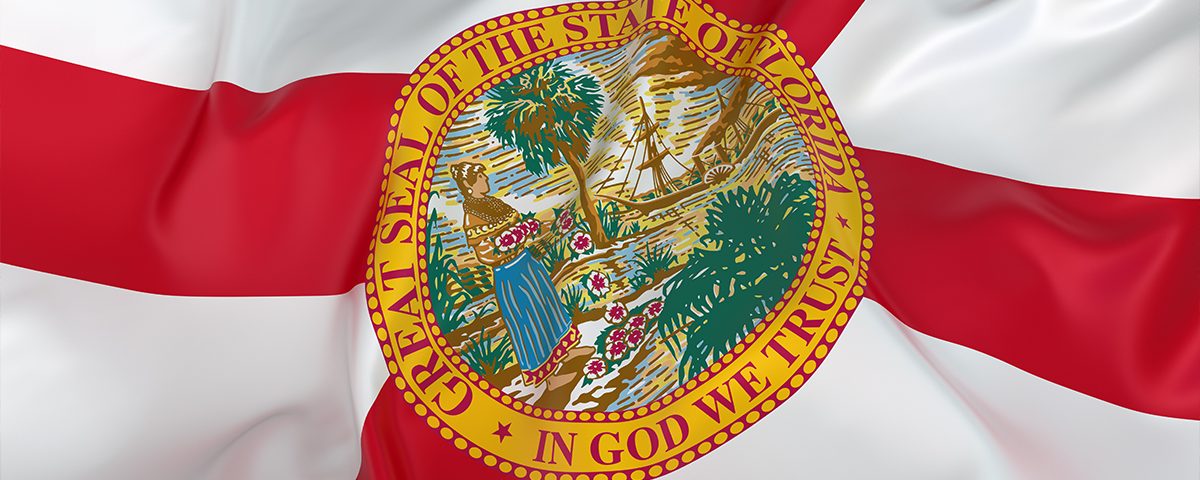Energy Retail Deregulation Wrong Fit for Florida
When More is Less: Higher Oil and Gas Taxes Harm Alaska
December 5, 2017Vogtle 3 and 4 Still Common Sense for Georgia
December 12, 2017
This week, PACE was on the road in Tallahassee, visiting with several members of the Florida legislature and learning about energy issues likely to arise in the 2018 session. As always, it was enjoyable to be outside the D.C. beltway, with warmer temperatures and fresh Gulf seafood all around.
Snow is rare in Tallahassee, but consumers need to be wary of the potential for a snow-job. Outside interests are setting up camp here to push for electric retail deregulation. Their primary vehicle so far is Prop 51, recently introduced and the likely subject of ongoing deliberations by the state’s Constitutional Revision Commission (CRC).
Already, exaggerated claims about the benefits of electric retail deregulation are swirling about. The Florida Restaurant and Lodging Association has kicked off a grassroots online campaign asserting that deregulation “could save Floridians $2.5 to $5 billion each year on their electricity bills” and “bring about lower prices, more innovative products and better customer service.” Their letter also asserts that “[w]e’ve seen these benefits in other states where customers can choose their electricity providers.”
There are some important questions to ask about these claims. First, where do the dollar figures come from? What does “could” mean? As well, what innovative products come with deregulation that aren’t already available to Florida’s electric consumers? Most importantly, what benefits of deregulation have they observed in other states?
In this column, I can’t answer the questions about the dollar figures and the definition of “could”; that responsibility lies with the proponents of deregulation. I can share that the neutral Energy Information Administration (EIA) tracks power prices for every state. For the year 2016, in 14 out of 16 cases, prices per kilowatt hour were higher in deregulated states than in Florida. I can also relate some findings PACE gathered this year that shed light on the supposed benefits of deregulation in other states.
In Texas’ deregulated retail market, consumers experienced brownouts in 2011, 2014 and 2015. In New York in December 2016, the PSC halted the sale of electricity and natural gas to low-income consumers, seeking to protect them from unscrupulous marketers. In 2014 in Connecticut, thousands of residents complained about their utility bills; deregulated suppliers were shown to charge nearly three times more than customers of the state’s two regulated suppliers.
Also, since I’ve benefited from reliable electricity supplied by the City of Tallahassee this week, I took a look on their website to learn more about innovative products and services. The City has its rate structure approved by the Florida PSC. Already, “[s]olar Net-Metering is available to all commercial electric customers who have a qualified solar photovoltaic (PV) system on their premises.” The city has rolled out updated rate structures, with “nights & Weekends Pricing, … [a] utility rate plan that offers cheaper electric rates during nights, weekends and holidays.”
Reasonable prices, innovation and longstanding relationships among Florida’s energy providers and millions of citizens are worth maintaining. Deregulation is the classic solution in search of a problem and the CRC should send it packing before the snow-job blankets Tallahassee and the state.
Online recommendations
- Non Gamstop Casinos
- Casino Non Aams
- Casino Online Nuovi
- Casino Non Aams
- Slot Sites UK
- Non Gamstop Casino
- UK Online Casinos Not On Gamstop
- UK Online Casinos Not On Gamstop
- Casino Sites Not On Gamstop
- Online Casinos
- Best Non Gamstop Casinos
- Non Gamstop Casino Sites UK
- Non Gamstop Casinos UK
- UK Betting Sites Not On Gamstop
- Casinos Not On Gamstop
- Non Gamstop Casinos
- Non Gamstop Casinos
- Best Non Gamstop Casinos
- UK Online Casinos Not On Gamstop
- Casino Sites Not On Gamstop
- Non Gamstop Casino
- Casino Not On Gamstop
- Casinos Not On Gamstop
- New Non Gamstop Casinos No Deposit Bonus
- Casino Non Aams
- Migliori Casino Online
- Crypto Casino
- Meilleurs Sites De Paris Sportifs Belgique
- Casino Con Prelievo Visa
- Site De Poker En Ligne Francais
- Meilleur Site De Paris Sportif Hors Arjel
- 出金早いオンラインカジノ
- Casino En Ligne
- Casino En Ligne
- オンラインカジノサイト
- Casinos En Ligne France
- Bitcoin Casino Italia
- Casino En Ligne
- Nuovi Siti Scommesse Online



